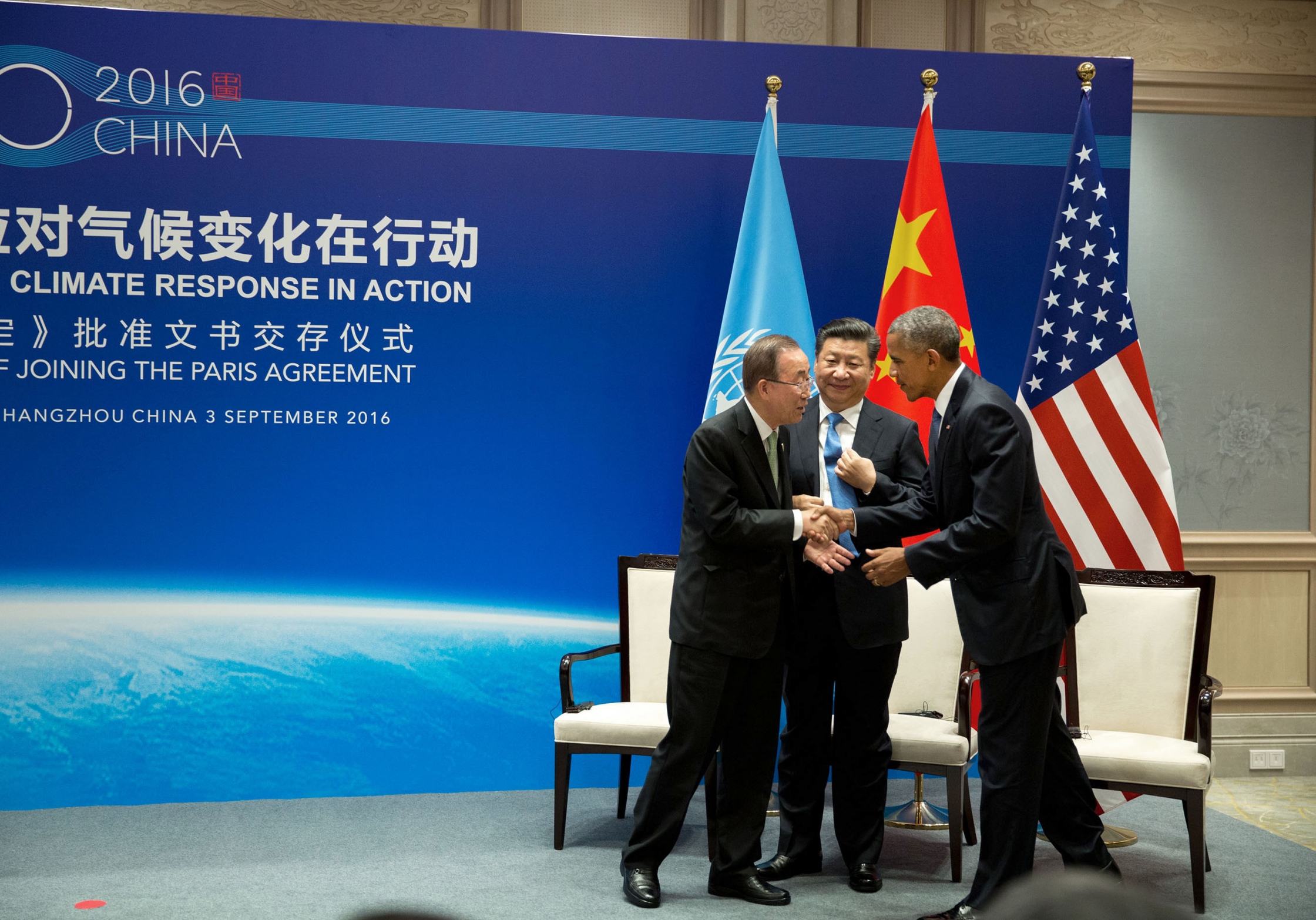
James Chau, President, China-United States Exchange Foundation
Jan 28, 2019
Stephen Orlins talks about the challenges facing US-China relations and the career of a "small potato."

Lily Hartzell, Freelance Journalist based in Beijing
Jan 25, 2019
China has shifted from a recalcitrant participant in global climate negotiations to a supporter of climate commitments on the world stage. Despite the US’s anti-globalist tendencies with climate policy, China, and the world, are still serious about combating global warming.
Justin Yifu Lin, Former Chief Economist, The World Bank
Håvard Halland, Visiting scholar at the Stanford Global Projects Center (GPC) at Stanford University
Oct 29, 2018
Without massive amounts of long-term “patient” capital – which only institutional investors can muster – it will be impossible to transform energy systems fast enough to mitigate the risk of ecological, economic, and social disaster.

Roger Raufer, Resident Professor of Energy, Resources, and Environment at SAIS's Hopkins-Nanjing Center
Nicholas Manthey, Graduate student at the Hopkins-Nanjing Center in Nanjing
Anneliese Gegenheimer, Graduate student at Johns Hopkins' School of Advanced International Studies
Oct 23, 2018
Despite the concerns attached to blockchain and its fairly extensive energy use, the world’s two largest economies have found environmentally-friendly potential in this new technology.

Minxin Pei, Tom and Margot Pritzker ’72 Professor of Government , Claremont McKenna College
Oct 23, 2018
As the world speculates on the immense damage the escalating U.S.-China trade war could bring to international economic sphere, these tensions could be putting the Earth itself at risk of destruction.

Rachael Shwom, Associate Director of Rutgers Energy Institute, Rutgers University
Sep 18, 2018
The challenges China faces in combating climate change are similar to those the U.S. faced.

Fan Gaoyue, Guest Professor at Sichuan University, Former Chief Specialist at PLA Academy of Military Science
May 28, 2018
Whilst Trump’s “America First” policy created the largest monthly budget surplus since 1968 (at $214 billion) in April this year and cut unemployment to below 4% for the first time since 2000, US credibility may have been permanently hurt.

Mikaila Smith, J.D. Candidate at the University of Chicago Law School
May 15, 2018
Contemporary discourse around climate change, energy consumption and geopolitics typically depicts China either as a 21st century redeemer or as an inevitable tragedy. Both of these narratives tend towards the extreme.

Zach Montague, News Assistant, New York Times
Nov 22, 2017
At the 19th Party Congress, President Xi announced that China had “taken a driving seat in international cooperation to respond to climate change.” But as much as Beijing has done to get its own house in order domestically, it has hasn’t always let concern over climate change inform its trade policy or diplomacy. And while China is becoming a cleaner, lower-emissions country at a national level, it has done so by "outsourcing" emissions, both internally and overseas.
Nov 01, 2017
A Chinese official said Tuesday that his country still wants to cooperate with the U.S. on climate change and hopes an upcoming meeting on the issue in Germany